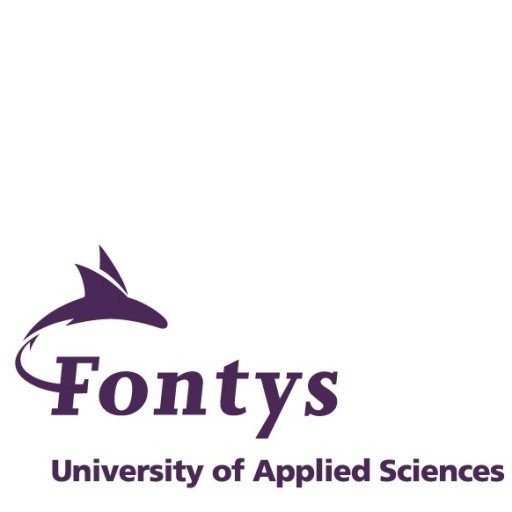International Logistics Engineering at Breda University of Applied Sciences is a comprehensive program designed to prepare students for a dynamic career in the global logistics and supply chain industry. This bachelor's degree combines technical engineering skills with strategic management knowledge, equipping graduates to optimize logistics processes, improve efficiency, and innovate solutions in complex international environments. Throughout the program, students gain a solid understanding of transportation, distribution, inventory management, and information systems, alongside modules focused on sustainability, logistics planning, and digital transformation. The curriculum emphasizes practical experience through internships, project-based learning, and collaborations with industry partners, ensuring students develop both theoretical expertise and real-world skills. With a strong international orientation, students learn to operate effectively across different cultures and markets, preparing them for roles in multinational companies, logistics service providers, and consultancy firms. Breda’s close ties with the logistics sector provide students with networking opportunities, guest lectures, and career support, fostering their professional growth. Graduates will be able to analyze supply chain challenges, design innovative logistics solutions, and contribute to the development of sustainable and efficient logistics networks worldwide. The program also emphasizes the importance of digital tools and data-driven decision making, preparing students for the evolving landscape of logistics technology. Upon completion, students are well-equipped to enter the workforce or pursue further specializations in logistics engineering or related fields. International Logistics Engineering at Breda University of Applied Sciences offers a robust education that combines technical prowess, strategic insight, and practical experience to launch successful careers in the global logistics sector.
The International Logistics Engineering programme at Breda University of Applied Sciences offers a comprehensive and practice-oriented education designed to prepare students for the dynamic world of global supply chain management and logistics operations. Throughout the course, students will develop a deep understanding of the principles and techniques used to design, implement, and optimize complex logistics networks across international borders. The programme emphasizes not only technical knowledge but also the strategic, managerial, and IT skills necessary to excel in the rapidly evolving logistics industry.
Students will explore topics such as transportation management, warehousing, inventory control, procurement, and distribution strategies, while gaining insights into the global supply chain ecosystem. A key focus of the programme is on sustainable logistics solutions, enabling future professionals to address environmental challenges and promote eco-efficient practices within the logistics sector. The curriculum integrates theoretical foundations with practical skills through project-based learning, internships, and collaborations with industry partners, ensuring students are well-prepared for real-world challenges.
In addition to core logistics topics, students will study areas such as supply chain planning, risk management, customs procedures, and the use of advanced IT systems like Enterprise Resource Planning (ERP) and Transportation Management Systems (TMS). The programme also emphasizes the importance of cultural awareness and effective communication in international contexts, equipping students to work effectively in diverse global settings.
The international aspect of the programme is reflected in its diverse student body, international faculty, and the global focus of its coursework. Students will have opportunities for international exchanges and internships, allowing them to gain firsthand experience working in different countries and cultures. The multidisciplinary approach of the programme ensures graduates will be capable of designing innovative logistics solutions that enhance efficiency, reduce costs, and contribute to sustainable development.
Graduates of the International Logistics Engineering programme will be well-positioned to pursue careers in various logistics and supply chain roles, including logistics managers, supply chain analysts, procurement specialists, and consultancy professionals. The programme prepares students to work in industries such as manufacturing, retail, freight forwarding, e-commerce, and more, supporting the seamless movement of goods worldwide. With a solid foundation in both technical and managerial aspects of logistics, graduates will be equipped to contribute meaningfully to the global supply chain and logistics industries.
Program requirements for the Bachelor's Degree in International Logistics Engineering at Breda University of Applied Sciences typically include a combination of academic qualifications, language proficiency, and other criteria. Applicants are generally required to have completed a secondary education equivalent to the Dutch VWO diploma or an international qualification such as the IB diploma, with a strong emphasis on mathematics, physics, or technical subjects, to ensure they have the foundational knowledge necessary for engineering studies.
Proficiency in the English language is essential, and applicants must demonstrate this through standardized test scores such as IELTS with a minimum overall score of 6.0 or TOEFL with a minimum internet-based score of 80. Alternatively, applicants who have completed prior education entirely in English may be exempted from this requirement, subject to verification.
Furthermore, the program encourages applicants to possess analytical thinking skills, problem-solving abilities, and an interest in logistics, transportation, and supply chain management. While professional experience is not typically a prerequisite, relevant internships or part-time work related to logistics can strengthen an application.
The university may also require a motivational letter, highlighting the applicant's interest in logistics engineering, and possibly an interview as part of the selection process. International students are advised to pay attention to visa requirements and health insurance coverage as part of their admission preparations.
Since specific program entry requirements can vary and be updated, prospective students should always consult the official Breda University of Applied Sciences admissions webpage for the most detailed and current information. Generally, the overall admission process assesses academic readiness, language proficiency, and motivation to ensure students are well-prepared to succeed in this rigorous engineering program.
The International Logistics Engineering program at Breda University of Applied Sciences offers various financing options to support students throughout their studies. Tuition fees are typically structured based on the student's nationality and residency status. For EU/EEA students, the annual tuition fee is approximately €2,209, while non-EU/EEA students may pay higher fees, often around €4,418 per year. These fees cover instruction, access to university facilities, and academic resources. In addition to tuition, students should consider costs for housing, study materials, insurance, and personal expenses, which can vary depending on lifestyle and location.
Breda University of Applied Sciences encourages students to explore multiple funding avenues. Scholarships and grants are available for outstanding students; these are often awarded based on academic performance, motivation, and other merit criteria. While specific scholarships for the International Logistics Engineering program are limited, students can apply for general university scholarships, national grants, or private funding options. Additionally, students from the European Union can benefit from government loans and grants aimed at supporting higher education.
International students often seek financial support from home country programs or bilateral agreements between their governments and the Netherlands. Some students may also qualify for study loans from financial institutions in their home countries to finance their education and living expenses. Breda University of Applied Sciences offers guidance and support services to help students identify suitable funding options and complete applications.
It is also important for prospective students to plan their finances carefully, considering the duration of the program, which is typically three years for bachelor's degrees. The university recommends early planning and consulting with its financial aid office to ensure access to available assistance. Moreover, students are advised to explore part-time work opportunities in Breda, which may assist in covering daily expenses, subject to visa regulations and work-hour restrictions for international students.
Overall, financing studies in International Logistics Engineering requires careful planning and utilization of diverse funding sources. Breda University of Applied Sciences strives to make education accessible by providing information and support to students seeking financial aid, enabling them to focus on their academic and professional development in the field of logistics and supply chain management.
International Logistics Engineering at Breda University of Applied Sciences is a comprehensive program designed to prepare students for a dynamic career in the global logistics and supply chain management industry. The curriculum emphasizes the development of technical skills, strategic thinking, and practical knowledge necessary to optimize logistics operations, manage complex supply chains, and implement innovative solutions in various industrial contexts. Students are introduced to core topics such as transportation management, warehousing, inventory control, and international trade regulations, ensuring a solid foundation in logistics principles.
Throughout the program, students engage with real-world case studies and practical projects, often collaborating with industry partners to gain hands-on experience. This approach enables graduates to understand current challenges in logistics, such as sustainability, digital transformation, and risk management. The program also offers courses in logistics planning, data analysis, and information systems, equipping students with the tools to enhance efficiency and decision-making processes in logistics companies.
Students have access to state-of-the-art facilities and labs that simulate real logistics environments, fostering experiential learning. The program encourages international exposure through exchange opportunities and internships abroad, broadening students’ perspectives on global supply chains and intercultural communication. Graduates from this program are well-prepared for careers in logistics consultancy, supply chain management, transportation planning, and operations management across a broad range of industries.
The faculty comprises experienced professionals and researchers dedicated to providing high-quality education and mentorship. The program’s innovative teaching methods, combined with a strong industry network, ensure that students are well-equipped to meet the demands of the modern logistics sector. Upon successful completion, graduates earn a Bachelor’s degree in International Logistics Engineering, opening doors to competitive roles in the global job market and opportunities for further academic advancement.








